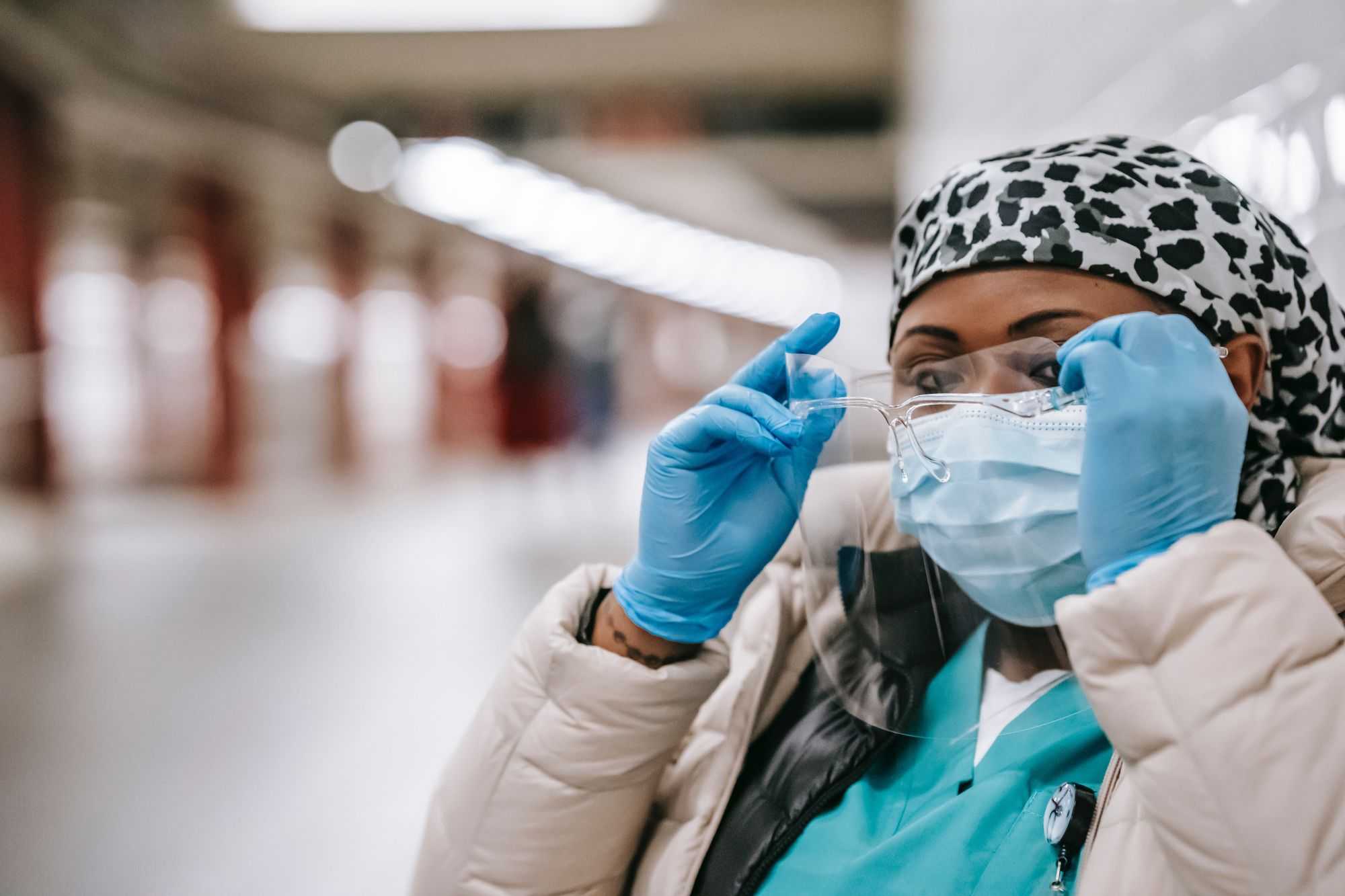
Our Covid-19 response
16 Jul 2021


COVID-19 Policy
(updated: Wednesday 10th February 2021)
At Edyn, we want to ensure that all our carers and clients remain as safe as is possible during the ongoing COVID-19 outbreak and to do so, we are introducing some company wide protocols and procedures. These will be updated frequently as the pandemic spreads. We are reassuring our carers, clients and their family that we are following the latest Government and Public Health England (PHE) coronavirus (COVID-19) guidance.
We have more than 50 frontline carers across England. They provide care in people’s homes through (home care and live-in care). As of updating (February 10th, 2020). We have had nine cases cases of coronavirus. At Edyn, we want to ensure that all our carers and clients remain safe as is possible during the ongoing COVID-19 outbreak and to do so, we are introducing some company wide protocols and procedures.
As pandemics can change quickly and unpredictably, it will be important to stay updated on the latest edyn.care information regarding COVID-19. It is our intent to not overload your with information, but we will make regular updates as and when necessary.
Message from CEO
“edyn.care central office is keeping fully abreast of developments relating to the continued spread of Coronavirus (COVID-19) across the UK and Ireland. We are routinely monitoring developments, reviewing our protocols, and preparing appropriate responses as the situation evolves. Edyn is committed to ensuring all steps are taken to protect the health and wellbeing of our carers and clients. We are sending out a daily updates to our carers to ensure they equipped with the most up to date and useful information”
“We continue to work closely with Health Authorities, the Care Quality Commission in order to protect our carers and clients maintain service delivery. We are keeping our Business Continuity Plans under review in preparation for a possible escalation of the outbreak”
“In the guidance PHE recommends that the best way to reduce any risk of infection is good hygiene and avoiding direct or close contact (within 2 metres) with any potentially infected person. Our carers will always maintain high standards of hygiene and follow robust infection control guidelines, but given that we care for some of the most vulnerable people in our communities, during this outbreak we expect them to be extra vigilant about handwashing, coughs and sneezes, and keep client’s homes clean. The wellbeing of our carers and clients is our highest priority.”
Policies and procedures in place
There have been no cases of coronavirus in any of our offices, but I would like to reassure people that we have robust policies and procedures in place, should this happen. This includes business continuity and contingency planning with our public sector health and social care partners, as underlined in the Department of Health’s coronavirus action plan published on 3rd or March.
According to PHE in normal day-to-day activities facemarks do not provide protection from respiratory viruses, such as COVID-19. PHE recommends that face masks should be worn by infected individuals only when advised by healthcare workers (to reduce the risk of transmitting the infection to other people) and not routinely by carers.
Carer Covid-19 Policy (updated 10th of February 2021)
Client Covid-19 Policy (updated 30th of January 2021)
Client care & risk assessment Covid-19 Policy (updated 15th of January 2021)
PPE equipment guidelines (updated 15th of March 2020)
General coronavirus hygiene principles
The general hygiene principles everyone should be following including:
- Washing your hands often - with soap and water (or using alcohol sanitiser that contains at least 60% alcohol if handwashing facilities are not available) - this is particularly important after taking public transport. Please make sure you wash your hands for at least 20 seconds.
- Covering your cough or sneeze with a tissue, then throwing the tissue in a bin.
- Avoid touching your eyes, nose and mouth with unwashed hands
- Cleaning and disinfecting frequently-touched objects and surfaces
Hourly carers washing their hands:
- before leaving home
- on arrival at work
- after using the toilet
- before food preparation
- after food preparation
- before eating any food, including snacks
- before leaving work
- on arrival at home
- before and after any care activity with clients and other carers
Live-in carers washing their hands:
- when you wake up
- after using the toilet
- after breaks
- before food preparation
- after food preparation
- before eating any food, including snacks
- before and after any care activity with clients (carers)
COVID-19 Frequently Asked Questions
How is the virus spread?
The coronaviruses are spread from someone infected to other close contacts through contaminated droplets spread by coughing or sneezing, or by contact with contaminated hands, surfaces or objects. The time between being exposed to the virus and when symptoms first appear is typically 5 to 6 days although can be from 2 to 14 days. This is why people who might have been in contact with a confirmed case are being asked to self-isolate for 14 days.
Can I still visit my relative at home?
Edyn are taking advice from local Health Protection Agencies regarding families visiting their loved ones at home. If you plan to visit your family member, please call beforehand to check on status.
I am reliant on my Edyn carers, what will happen if the virus spreads and they are no longer able to come?
Edyn have Business Continuity Plans in place to cover emergencies such as a viral outbreak of pandemic. All edyn.care carers and support staff follow strict infection prevention and control guidelines.We are also conducting COVID-19 specific online training for our carers. The geo-spreading of our carer network gives flexibility in terms of severe lack of staff in any one region; bank staff and if necessary, agency workers and appropriate volunteers will be utilised.
What if a carer has Coronavirus symptoms and/or tests positives for the virus?
If a carer becomes unwell while at work and is symptomatic, they are required to report this to our care management team. They should be removed to an area which is at least 2 metres away from other people, and if possible, find a room or area where they can be isolated behind a closed door. If possible, open a window for ventilation. Our care manager will liase with you about the best course of action, which in most cases is supporting the carer to leave your home safely and self-isolate elsewhere. We will draw on our resources and send a replacement carer to your home to ensure your safety and on-going care needs are met.
If your carer feels unwell or receives a positive test for Coronavirus before they are scheduled to care for you, we will immediately find a replacement carer for you so you can be rest assured not to be left with no one to care for you.
What if a client has Coronavirus symptoms and/or tests positives for the virus?
We have a very robust process in place should one of our clients experience the symptoms of Coronavirus. Whilst most of our clients are continuing to spend more time at home than usual, we do know that the current situation is not entirely risk free.
If clients observe any symptoms of Coronavirus our professional carers will immediately notify their Care Manager, who report the case. The Care Manager will then contact the family to advise them of the situation and will help support the family complete the track and trace application to ensure their loved one is tested. We will also request that our carer is tested.
Many of our carers, despite having their own families have been happy to self-isolate with their client in their home for the 7-14 day period so both can remain safe. The professional carer with the remote support of their Care Manager will complete a comprehensive review of the client’s care plan.
I don’t know how I’ll manage being isolated for 14 days
Learn how to self isolate, the NHS website is up-to-date with latest guidance which states.
Do
- try to keep at least 2 metres (3 steps) from other people in your home, particularly older people or those with long-term health conditions
- ask friends and family and delivery services to deliver things like food shopping and medicines – but avoid contact with them
- sleep alone if possible
- regularly wash your hands with soap and warm water for at least 20 seconds
- drink plenty of water and take everyday painkillers, such as paracetamol and ibuprofen, to help with your symptoms
Don't
- have visitors (ask people to leave deliveries outside)
- leave the house, for example to go for a walk, to school or public places
Useful resources
Stay up-to-date using trusted sources of information. The UK Government and the NHS will keep people informed of new advice and developments. Please check the following sources of advice frequently:
- The UK coronavirus (COVID-19) page will keep you in touch with how the Government is responding.
- The NHS coronavirus (COVID-19) page includes a wide range of health-related information.
- If you are planning to travel abroad check the Foreign and Commonwealth Office travel advice page.
- Follow Public Health England or The Department of Health and Social Care on Twitter for regular updates.
To reiterate, we will continue to work closely with Health Authorities and the Care Quality Commission in order to protect our carers and clients maintain service delivery.


